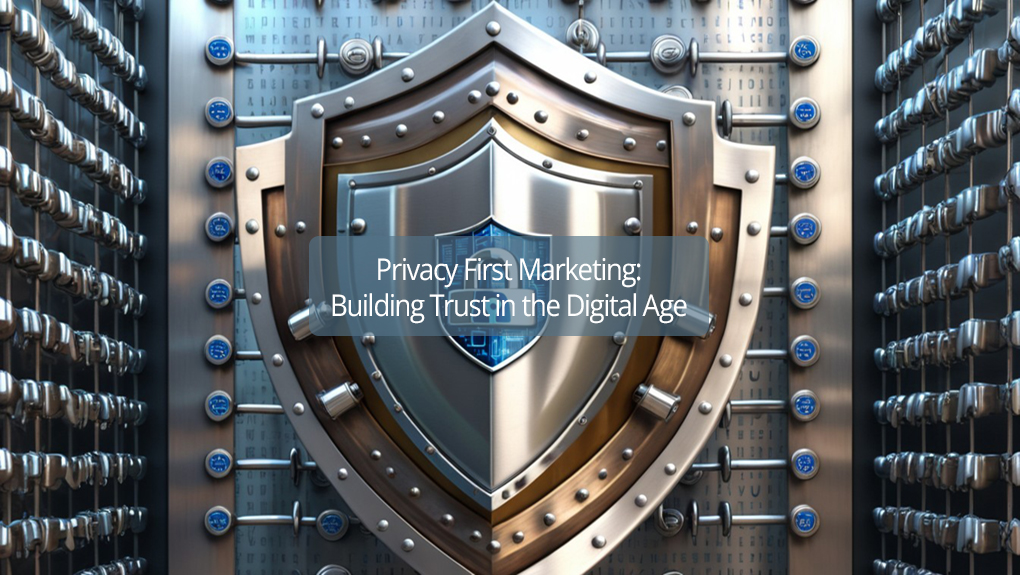|
Getting your Trinity Audio player ready...
|

In the digital age, where information is currency and data breaches are daily headlines, the concept of privacy has never been more critical. With the enforcement of stringent privacy regulations like GDPR and CCPA and a growing consumer awareness of data rights, marketers face a paradox: how to effectively reach and engage their audience while respecting their privacy concerns.
Privacy-first marketing is not just a trend; it’s a necessity in today’s landscape. It requires a shift in mindset from viewing consumer data as a commodity to treating it as a privilege, with transparency, consent, and security at the forefront. In this article, we’ll explore strategies for navigating this complex terrain and driving effective marketing campaigns in an era where privacy regulations and consumer expectations are evolving.
Understanding the Privacy Landscape
Before diving into strategies, it’s crucial to understand the privacy landscape. Privacy regulations like the General Data Protection Regulation (GDPR) in Europe and the California Consumer Privacy Act (CCPA) in the United States have set a new standard for data protection and consumer privacy. These regulations require businesses to obtain explicit consent for data collection, provide transparent privacy policies, and offer consumers control over their personal information.
Moreover, consumer attitudes towards privacy have shifted dramatically. High-profile data breaches, concerns over targeted advertising, and growing awareness of online tracking have made consumers more cautious about sharing their data. A survey by Pew Research Center found that 79% of Americans are concerned about the way their data is being used by companies.
The Benefits of Privacy-First Marketing
Embracing privacy-first marketing isn’t just about compliance; it’s also about building trust and fostering stronger relationships with customers. By prioritizing privacy, businesses can:
- Enhance Trust: When consumers feel that their privacy is respected, they are more likely to trust a brand. Trust is the foundation of any successful marketing strategy, and prioritizing privacy can help businesses establish credibility and loyalty.
- Differentiate From Competitors: In a crowded marketplace, privacy can be a key differentiator. By positioning themselves as privacy-first brands, businesses can attract consumers who prioritize data protection and ethical practices.
- Mitigate Risk: Non-compliance with privacy regulations can result in hefty fines and reputational damage. By implementing privacy-first practices, businesses can mitigate the risk of regulatory penalties and protect their brand reputation.
Strategies for Privacy-First Marketing
Now that we understand the importance of privacy-first marketing, let’s explore some strategies for implementing it effectively:
1. Transparency and Consent
Transparency is the cornerstone of privacy-first marketing. Businesses should clearly communicate their data collection practices, how the data will be used, and provide users with the option to opt-out if they choose. This can be achieved through:
- Clear Privacy Policies: Ensure that your privacy policy is easily accessible, written in plain language, and clearly outlines what data is collected, how it’s used, and who it’s shared with.
- Explicit Consent: Obtain explicit consent from users before collecting their data. This can be achieved through cookie consent banners, opt-in checkboxes, or other consent mechanisms.
2. Minimize Data Collection
Collecting less data reduces the risk of misuse or data breaches. Businesses should adopt a minimalist approach to data collection, only collecting the information that is necessary for the intended purpose. This can include:
- Data Minimization: Only collect data that is necessary for the specific transaction or interaction with the user. Avoid collecting unnecessary information that isn’t relevant to the user’s experience.
- Anonymization and Pseudonymization: Where possible, anonymize or pseudonymize user data to minimize the risk of identification and protect user privacy.
3. Secure Data Handling
Protecting user data is paramount in privacy-first marketing. Businesses should implement robust security measures to safeguard against unauthorized access, data breaches, and other security threats. This can include:
- Encryption: Encrypt sensitive data both in transit and at rest to prevent unauthorized access.
- Access Controls: Limit access to user data to only those employees who require it for their job function. Implement strong access controls and authentication mechanisms to prevent unauthorized access.
4. Empower User Control
Empowering users to control their data is essential in privacy-first marketing. Businesses should provide users with tools and options to manage their privacy preferences and exercise control over their data. This can include:
- Privacy Settings: Provide users with granular privacy settings that allow them to customize their preferences regarding data collection, sharing, and targeted advertising.
- Data Portability: Allow users to easily export their data or transfer it to other services, giving them greater control over their personal information.
5. Invest in Education and Awareness
Finally, businesses should invest in educating both employees and customers about privacy best practices. This can include:
- Employee Training: Provide regular training and education sessions for employees on privacy regulations, data handling procedures, and best practices.
- Customer Education: Educate customers about privacy risks, their rights under privacy regulations, and how they can protect their personal information online.
In the End
Privacy-first marketing is no longer optional—it’s imperative. By prioritizing transparency, consent, data minimization, security, user control, and education, businesses can build trust, differentiate themselves from competitors, and mitigate the risk of regulatory penalties. In an era where privacy regulations are becoming stricter, and consumers are more aware of their data rights, embracing privacy-first marketing isn’t just a strategy; it’s a commitment to ethical and responsible business practices. By putting privacy first, businesses can not only protect their brand reputation but also foster stronger, more meaningful relationships with their customers.




